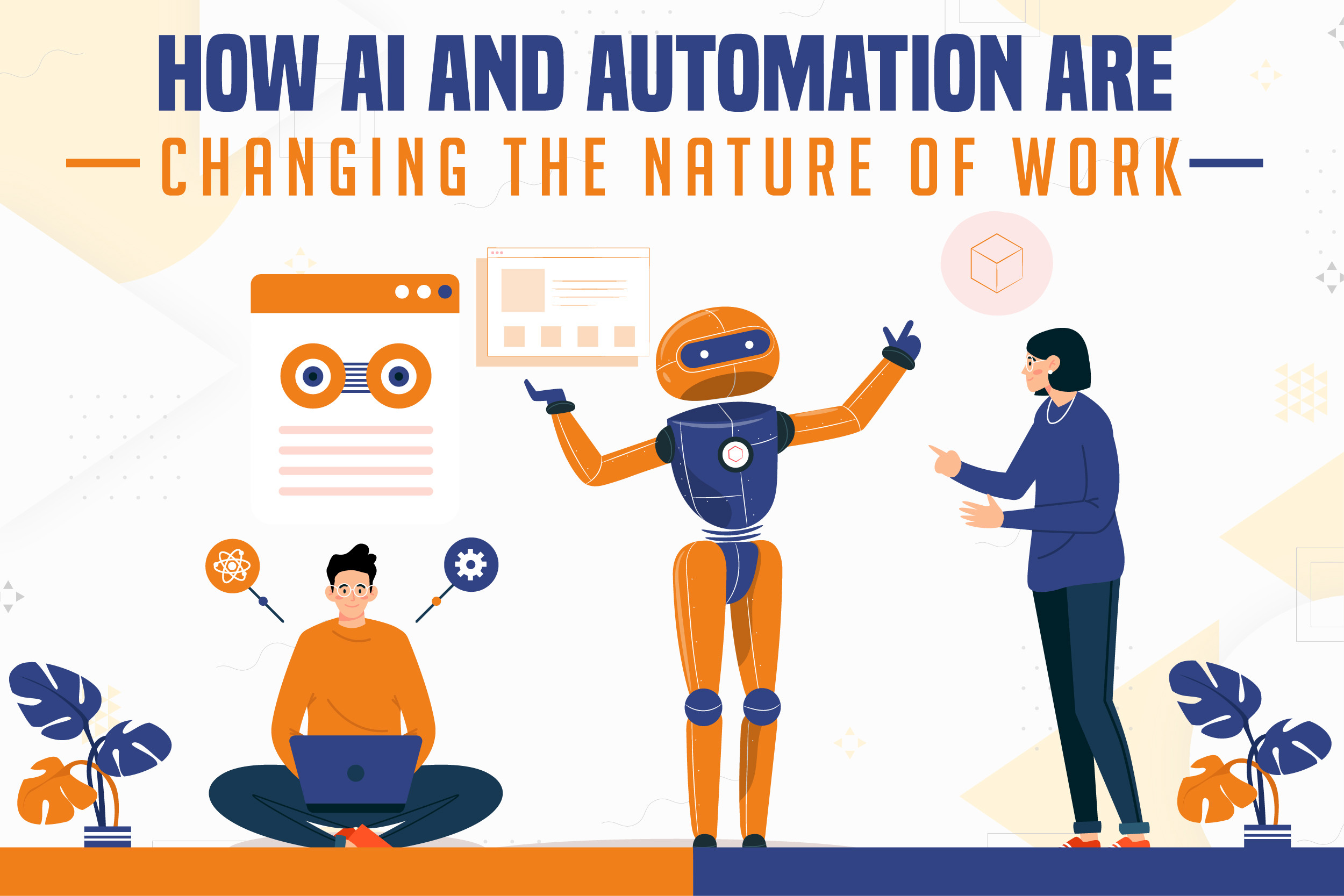
How AI And Automation Are Changing the Nature of Work
AI and automation are revolutionizing industries, and they will eventually boost productivity and aid in economic growth. Additionally, they support efforts to solve social problems in a range of areas, including health and climate change. These technologies simultaneously alter the character of the job and the workplace.
More activities can be completed by machines than by people, and they can even undertake some jobs that are beyond the scope of human ability. As a result, some professions may decrease; while others may prosper, and many opportunities can even open up.
Although we may think there will always be employment for everyone, society must deal with necessary workforce transitions and displacements. The workers might need to pick up new skills and adjust to the proficient machines working beside them. They could have to switch from declining careers to flourishing ones or, in some situations, entirely new ones.
Fields Impacted By Automation And AI
As was already mentioned, practically every industry is impacted by AI and automation. Here are a few of the industries it affects:
1. Industries Of Real Estate
Artificial intelligence (AI) has already entered the real estate market and is causing a significant shift in this sector by influencing the house search process and forecasting market trends.
AI-powered house search websites display suggested qualities that are in line with the user's needs and personality attributes. These portals support lower-quality, higher-quality properties that more closely match the demands of the consumer. Chatbots assist in answering basic queries to help potential consumers locate their next place to live.
Utilizing machine learning and AI, chatbots are getting increasingly intelligent and will eventually be able to competently respond to sophisticated search requests via text and speech. You can thus concentrate on developing client connections or signing contracts because AI will be doing a lot of the manual labor now. Also, you can watch out for popular institutions that provide Corporate Technical Training to professionals so that they can become less apprehensive about losing their value in their companies and learn new skillsets to sustain in the market.
By merging CRM and market data, AI has the potential to forecast the market prices of assets. Soon, robots may assist the agents in providing clients with a luxurious shopping experience. AI is intended to be crucial in increasing the efficiency of agents and providing clients with a uniquely tailored user experience.
2. The Retail Industry
We can already observe how quickly AI and robotics are displacing humans in the workplace and daily life. The retail business has been impacted by AI and robotics in every way, whether it be through Amazon Go or a cashless convenience shop. According to IBM, 79% of consumer goods companies and 85% of retail product companies plan to integrate AI into their supply chains by 2021. This innovative technology completely transforms the client experience through the use of object tracking, voice activation, augmented reality (AR), and projection systems. Believe it or not, they are greatly influencing the process of Technical Transformation worldwide.
The current retail sector model and the wider value chain are poised to be redesigned by automation and AI. The firms that emerge from this change will have fewer layers and a competent, reliable workforce, all supported by genuine analytics and data capture. Organizations will be able to make decisions more quickly with better-trained teams and jobs that combine business and technological aspects.
3. The Healthcare Industry
Artificial intelligence is already used in healthcare to identify and cure ailments. In treating and diagnosing cardiovascular disorders, clinicians and hospitals can make substantial use of AI. They can also, like the contemporary IDx-DR, quickly generate a binary diagnosis.
Artificial intelligence-powered BCIs, also known as brain-computer interfaces, have the potential to help people who have previously experienced trauma regain their neurological functions. You can obtain more knowledge on this domain from relevant Technical Courses. According to specialists, artificial intelligence will be used to create the next generation of radiological instruments, which will ensure accuracy and be sufficiently comprehensive to do away with the need for tissue samples. AI is predicted to address the shortages of skilled healthcare professionals in the near future, especially in undeveloped areas.
Endnote
By integrating automation and artificial intelligence into their business processes, companies may enhance productivity, enhance accuracy, and complete tasks quickly. The only problem that AI and automation currently have is workers' anxiety about job loss. Even if firms implement AI or automation, there will still be options for employment in the market.
But in order to take advantage of these new opportunities, personnel must develop new abilities and be flexible enough to adjust. It will be essential to reskill and upskill new hires as well as current employees for any potential issues. If we are able to coexist peacefully with technology and the changes it brings about, the technology of tomorrow can be far more affluent.
